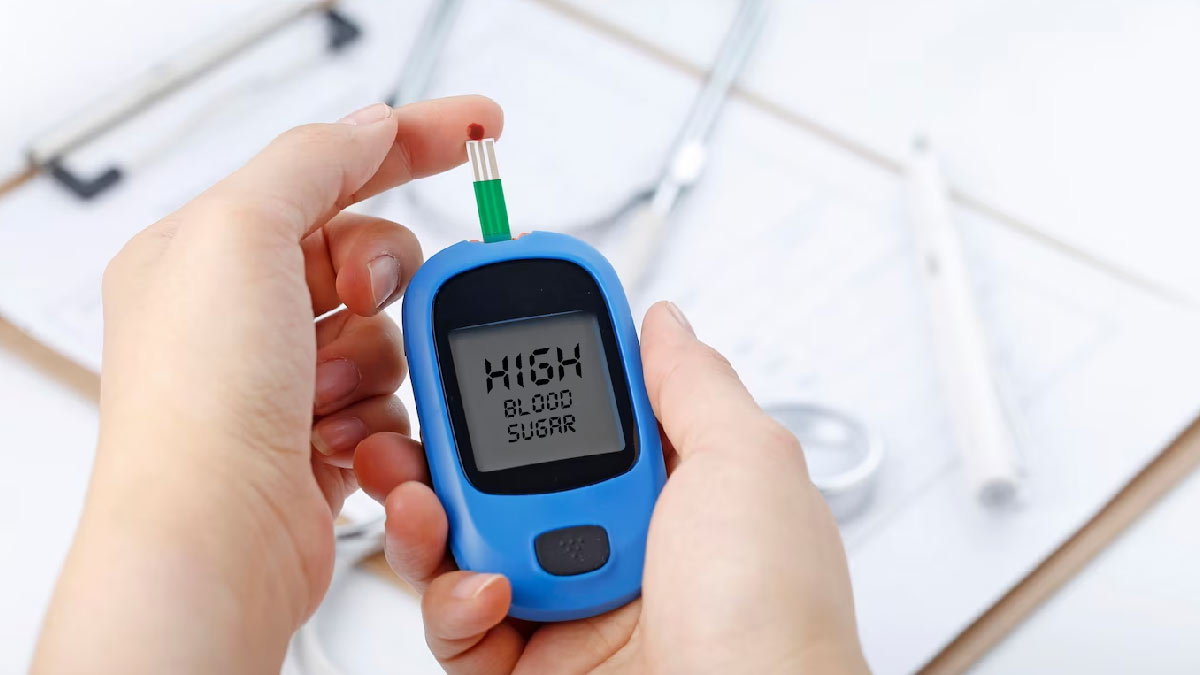
Many diseases can overlap with each other. While they may not be directly linked, they can share symptoms, risk factors, or even underlying mechanisms.
This can pertain to a diabetes symptom that can be mistaken for a Sexually Transmitted Disease (STD). Here’s what to know.
Table of Content:-
No Relation Between Diabetes And An STD

It is important to note that there is no direct causal relationship between diabetes and STDs, nor does having diabetes automatically make you more susceptible to contracting an STD.
They are separate conditions with distinct causes and transmission methods.
Also Read: What Does An Ideal Breakfast Look Like For Diabetics: Foods To Eat And Avoid
However, it's important to clarify that diabetes can indirectly increase the risk of certain complications from STDs. The weakened immune system and impaired blood circulation associated with diabetes can make it harder to fight off infections, potentially leading to more severe symptoms or prolonged recovery from STDs.
Genital Itching May Be An Overlapping Symptom In Diabetes And STD Patients
Speaking with the OnlyMyHealth team, Dr Shobha Subramanian Itolikar, Consultant-General Physician, Fortis Hospital, Mulund, suggests that both diabetes and an STD can cause genital itching.
This can often create confusion and may even lead to delayed diagnoses if other symptoms are not paid attention to.
However, genital itching associated with diabetes has a different cause than STD-related genital itching.
Diabetes And Genital Itching

Diabetes is a chronic condition that affects about 42.2 crore people worldwide, as per the World Health Organization (WHO). It occurs when a person does not have a healthy pancreas that produces enough insulin or if the body is unable to effectively use the insulin produced.
While diabetes can lead to several symptoms, genital itching can be one of them. Some of the reasons why diabetes causes genital itching include:
- Fungal infection due to the yeast species Candida
- Bacterial vaginosis is caused by bacteria like Gardnerella species, Prevotella species, and mixed vaginal anaerobes species, which facilitate the growth of bad bacteria and replace the good bacteria called Lactobacilli that help maintain a healthy vaginal environment.
- Stress
- Change in pH (acidity) of vagina due to alteration of vaginal flora, mostly after excess antibiotic usage, poor dietary choices, and use of tampons
Also Read: What Are Sexually Transmitted Infections? STIs Explained
Types Of STDs That Cause Genital Itching

STDs primarily occur through direct contact with infected bodily fluids. This can happen during various forms of sexual activity, including vaginal, anal, and oral sex.
Some of the most common types of STDs that may cause genital itching include:
- Chlamydia
- Gonorrhoea
- Trichomoniasis
- Genital herpes
- Genital warts
How To Differentiate Between The Two?
Dr Itolikar says, “Genital itching due to diabetic fungal infections will present with redness and curdy white precipitates in the background of uncontrolled sugars, whereas STDs will present with profuse foul-smelling discharge with painful or painless ulcerations in the genitalia.”
To get an accurate diagnosis, she recommends getting a microscopic examination of the discharge, which will yield further clues as to the cause of the itching. Furthermore, you can also get blood tests and fluid culture tests to further confirm the diagnosis.
Treatment Approach
Depending on the diagnosis, you can proceed with a treatment plan.
Treatment approaches for genital itching and burning in diabetic patients include maintaining genital hygiene, controlling blood sugar levels, practising safe sexual behaviours, consuming probiotic-rich foods, and seeking early consultation with specialists when symptomatic.
While many STDs have noticeable symptoms like burning, sores, or unusual discharge, others exhibit no symptoms at all. This highlights the importance of regular testing and practising safe sex, even if you feel healthy. By understanding how STDs spread and taking precautions, you can significantly reduce your risk of contracting and transmitting these infections.
Also watch this video
How we keep this article up to date:
We work with experts and keep a close eye on the latest in health and wellness. Whenever there is a new research or helpful information, we update our articles with accurate and useful advice.
Current Version